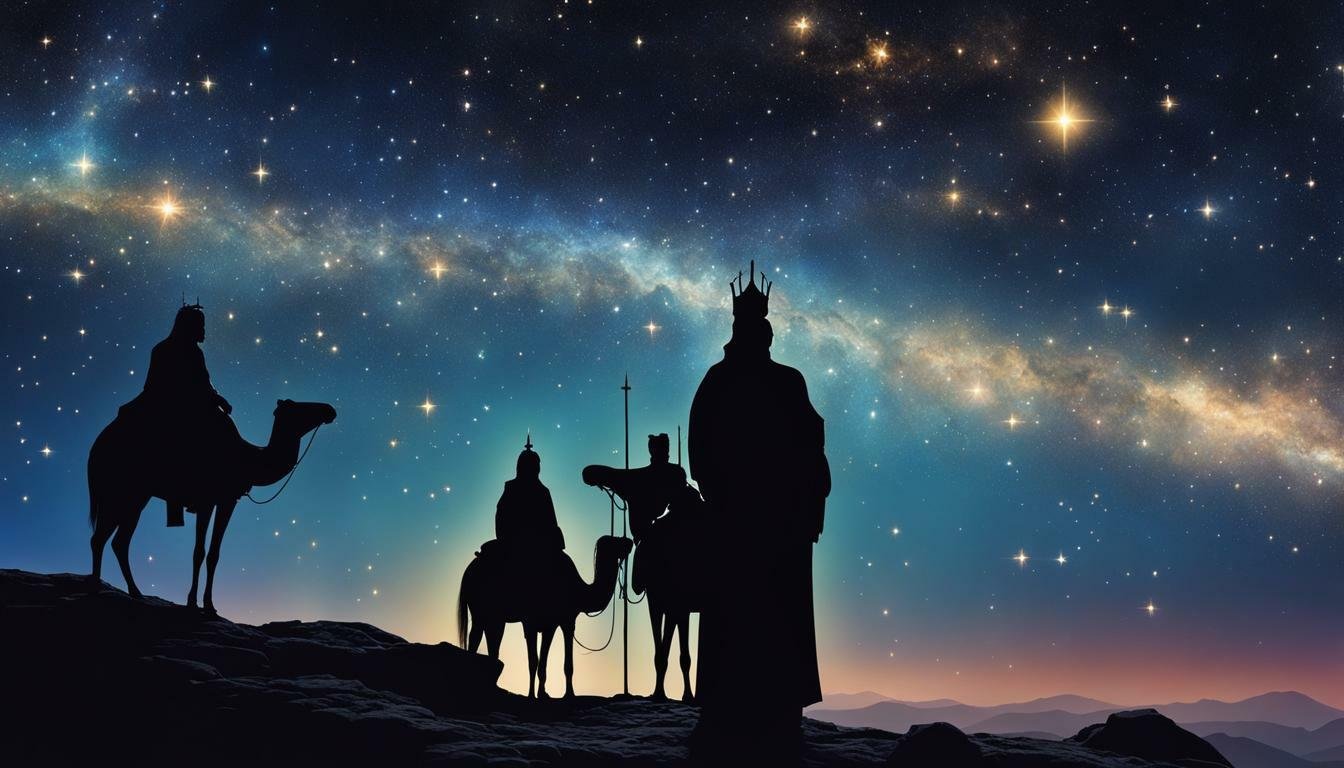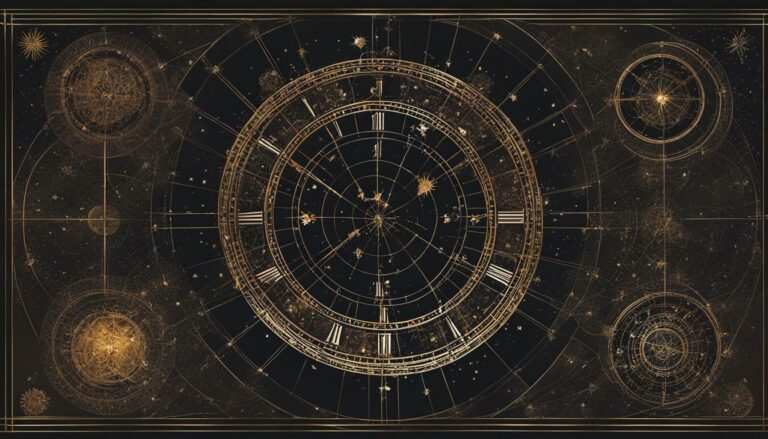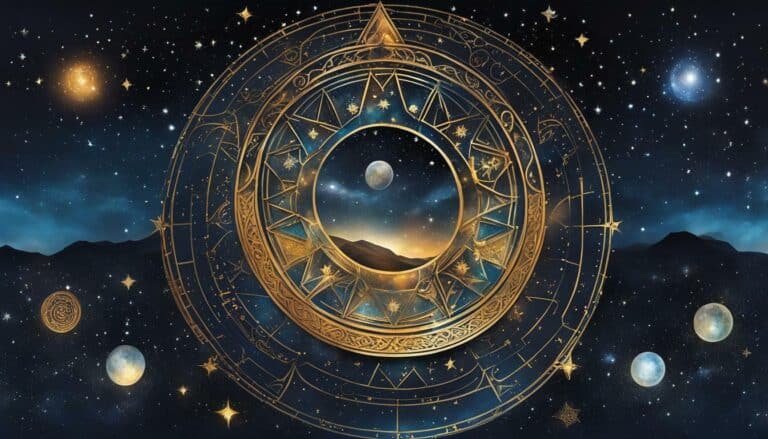Were the Magi Astrologers? Unlocking Ancient Mysteries
As we celebrate the Christmas season, we often hear the story of the Magi or the wise men who followed the star of Bethlehem to visit the newborn baby Jesus. But who were these mysterious figures, and were they astrologers as some theories suggest?
In this section, we will explore the intriguing question of whether the Magi were astrologers and uncover the secrets of their role in the Christmas story and the nativity. We will also delve into the significance of astrology in ancient times, particularly the star of Bethlehem, and examine the historical evidence and theories surrounding the Magi.
- The Magi, also known as the wise men, are mentioned in the biblical account of the nativity and are believed to have followed the star of Bethlehem to visit the newborn Jesus.
- There are theories that suggest the Magi were astrologers who used their knowledge of the stars to guide them on their journey.
- Astrology played a significant role in ancient times and was often used as a means of divination and guidance.
- The star of Bethlehem is a mysterious phenomenon that has been interpreted in various ways, including as an astronomical event or a divine sign.
- By examining the historical evidence and theories surrounding the Magi and their relationship with astrology, we can gain insights into this ancient mystery.
The Biblical Account of the Magi
Let’s start by examining the biblical account of the Magi. In the Christmas story, we read about the wise men who followed a star to find the newborn Jesus. The Gospel of Matthew is the only biblical reference to these men, and it doesn’t provide much detail about who they were or where they came from. However, we do know that they brought gifts of gold, frankincense, and myrrh to the baby Jesus.
The term “Magi” is believed to have referred to a group of educated men who studied astronomy, astrology, and other sciences. They were most likely from Persia, which is modern-day Iran. It’s also possible that they were members of a priestly caste in Zoroastrianism, an ancient religion practiced in Persia.
The Magi were certainly seen as significant and wise figures in the nativity story. Their journey to Bethlehem was a long and difficult one, and it’s possible that they traveled for months. The fact that they were able to find the baby Jesus, who was born in humble circumstances, is seen as a powerful symbol of their wisdom and dedication.
However, the Bible does not explicitly state if the Magi were practicing astrology or if they simply saw the star as a sign from God. This is where historical context and interpretation come into play, which we’ll explore in the next section.
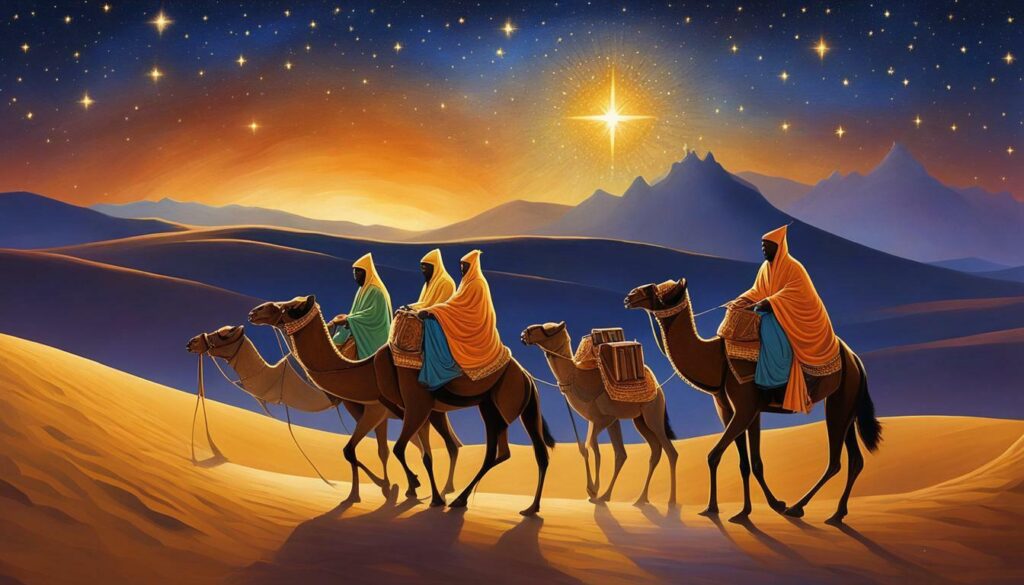
Before we explore the connection between the Magi and astrology, let’s first understand the significance of astrology in ancient times. Astrology was an integral part of many ancient cultures and was considered a science that could reveal the will of the gods and provide guidance for individuals.
During the time of the Magi, astrology was practiced in many different forms. For example, the Babylonians used astrology to predict the future of the king and his kingdom, while the Greeks used it to describe the character and destiny of individuals based on the position of the planets and stars at the time of their birth.
One particular example of the connection between astrology and the nativity story is the Star of Bethlehem. The story tells of a bright star that appeared in the sky and led the Magi to the birthplace of Jesus. Some scholars believe that this star could have been a rare astronomical event, such as a conjunction of two planets or a comet. Others suggest that it could have been a symbolic representation of the birth of a new king, as was often depicted in ancient astrology.
Although the exact nature of the Star of Bethlehem remains a mystery, it is clear that astrology played a significant role in the cultural context of the time. Its influence extended beyond predicting the future and was also used to make important decisions, such as political appointments and military strategies.
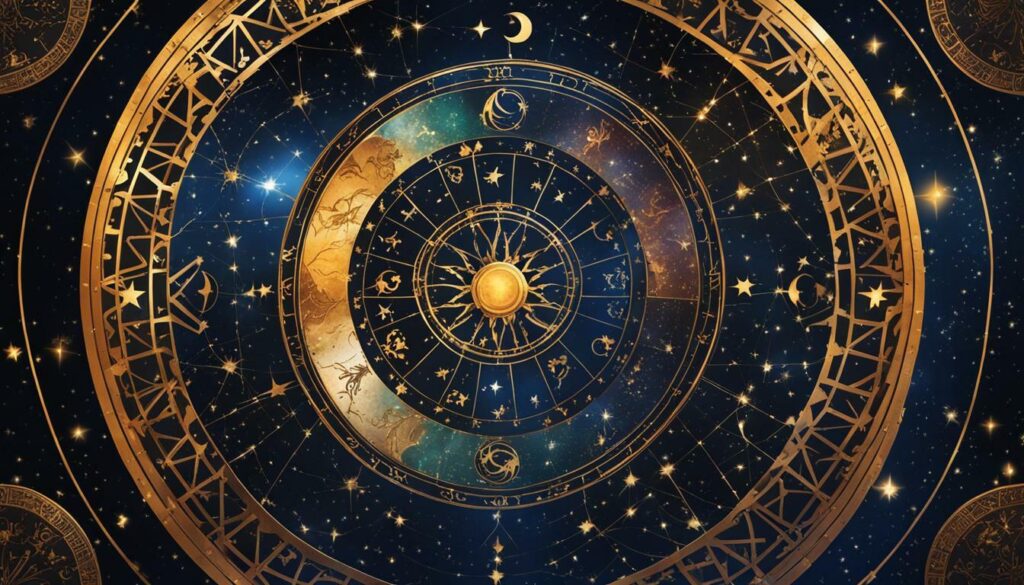
As we continue to explore the relationship between the Magi and astrology, it’s important to keep in mind the cultural significance and impact of this ancient practice. By understanding the role of astrology, we can gain a greater understanding of the possible connection between the wise men and their astrological practices.
Historical Evidence and Theories
The question of whether the Magi were astrologers has been a topic of debate for centuries. While the Bible does not explicitly state that the wise men were astrologers, it does mention their interest in astronomy and the star of Bethlehem.
One theory suggests that the Magi were from Persia, where the practice of astrology was prevalent. They may have studied the stars and used their knowledge to predict important events, such as the birth of a king.
This theory is supported by ancient texts, including the Gospel of Matthew. The passage describes the Magi as following a star in the east that led them to Bethlehem, where they worshipped the newborn Jesus and presented him with gifts. Some scholars believe that the star of Bethlehem may have been a rare astronomical event, such as a conjunction of planets or a supernova.
Others argue that the Magi’s journey to Bethlehem was not solely based on astrology, but also on their spiritual beliefs. The Epiphany, which celebrates the Magi’s visit to Jesus, is an important feast day in the Christian calendar and highlights the significance of the wise men in the nativity story.
Historical Texts
Ancient texts provide further evidence of the Magi’s possible astrological practices. The historian Josephus, who lived in the 1st century AD, wrote about a group of wise men known as the Magi who were highly respected in Persia for their knowledge of the stars.
The Greek historian Herodotus also mentioned the Magi in his writings, describing them as a priestly class in ancient Persia who practiced divination through dreams and other means.
Archaeological Findings
Archaeological findings have also shed light on the Magi’s possible astrological practices. In the 1930s, excavations in Susa, an ancient city in Persia, uncovered a cuneiform tablet that contained a record of astronomical observations. The tablet included references to the movements of the planet Jupiter, which was known as the “king planet” in Babylonian astrology.
Another artifact, known as the Farnese Atlas, is a 2nd century Roman statue that depicts the Titan Atlas holding a celestial sphere. The sphere is adorned with various constellations, including the zodiac signs, which were important in Babylonian astrology.
Conclusion
While there is no definitive proof that the Magi were astrologers, the historical evidence and theories surrounding their possible practices suggest that astrology may have played a role in their journey to Bethlehem. Their fascination with the stars and their belief in the significance of astronomical events may have led them to recognize the birth of Jesus as an important event. Ultimately, the mystery of the Magi and their relationship with astrology remains a topic of fascination and debate.
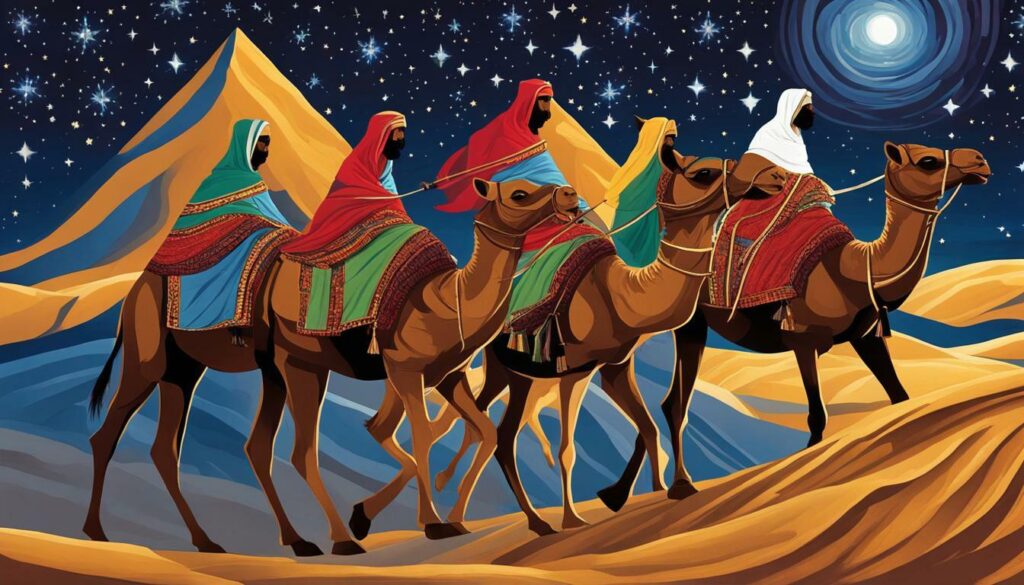
After delving into the fascinating mystery of the Magi, also known as the wise men, and their possible connection to astrology, we can draw some conclusions. While the biblical account of the Magi does not explicitly state that they were astrologers, it does describe them as having seen a star in the east and following it to find Jesus. This has led many scholars to theorize that the Magi may have been practicing some form of astrology.
Furthermore, the role of astrology in ancient times was significant, and it was commonly used to guide individuals. It is likely that the Magi, as wise men, were knowledgeable about astrology and may have used it in their journey to find Jesus. The significance of the star of Bethlehem, which led them to Jesus, is still debated and may have some astrological significance.
While there is no conclusive historical evidence that proves the Magi were astrologers, the various theories and interpretations suggest that it is entirely possible. The celebration of Epiphany, which commemorates the visit of the Magi to Jesus, is still observed by many today and is a testament to the enduring mystery of the Magi.
In Conclusion
So, were the Magi astrologers? The answer is not straightforward, and it ultimately depends on your interpretation of the evidence and theories presented. However, it is safe to say that astrology played a significant role in ancient times and could have been practiced by the Magi. Regardless of whether they were astrologers, the visit of the Magi to Jesus has had a lasting impact and continues to fascinate people around the world.
Thank you for joining me on this journey of exploring the mystery of the Magi and their possible connection to astrology. I hope you have gained some new insights and perspectives.
FAQ
Q: Were the Magi astrologers?
A: There is evidence to suggest that the Magi were indeed astrologers. The biblical account references their following of a star, which aligns with astrological practices of the time. Additionally, historical theories and archaeological findings support the idea that the Magi were knowledgeable in astrology.
Q: What is the biblical account of the Magi?
A: The biblical account of the Magi can be found in the Christmas story, specifically in the nativity narrative. They are referred to as wise men and are described as following a star to find the baby Jesus. Their visitation is traditionally celebrated on Epiphany, which is observed on January 6th.
Q: What role did astrology play in ancient times?
A: Astrology held significant cultural and spiritual relevance in ancient times. It was believed to provide guidance and insight into human affairs and the natural world. People would consult astrologers to gain knowledge about their destiny, make important decisions, and interpret celestial events. The star of Bethlehem, mentioned in relation to the Magi, is often associated with astrological symbolism.
Q: What historical evidence and theories exist regarding the Magi’s astrological practices?
A: Various pieces of historical evidence and theories support the idea that the Magi were astrologers. Ancient texts mention the astrological practices of the time, and archaeological findings suggest that astrology played a significant role in their society. Scholarly interpretations also provide insights into the connection between the Magi and astrological symbolism.
Q: What conclusions can be drawn about the Magi’s astrological connection?
A: Based on the information presented, it is plausible to conclude that the Magi were indeed astrologers. The biblical account, historical evidence, and cultural context all point towards their involvement in astrological practices. However, it is important to note that interpretations may vary, and forming one’s own conclusions is encouraged.

